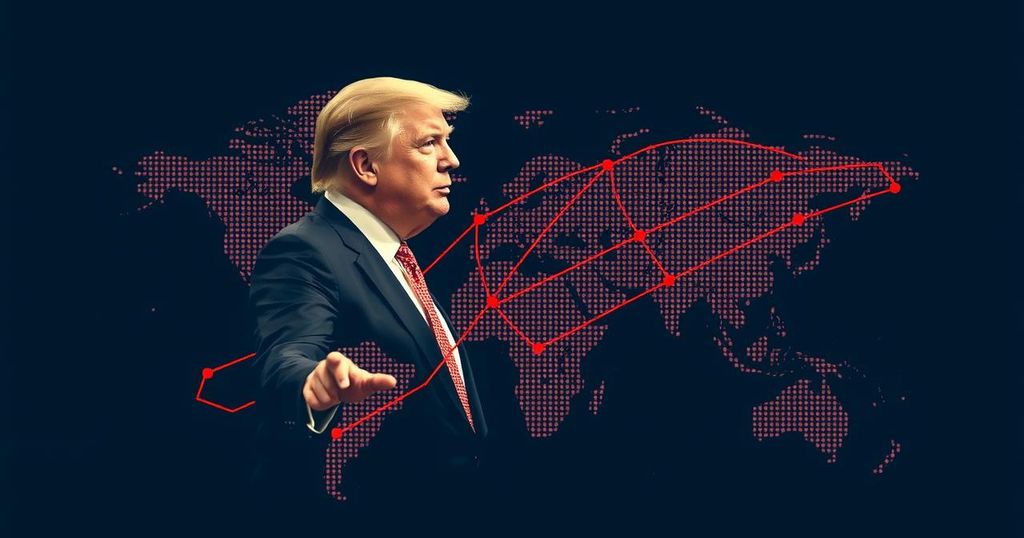Trump’s Re-election: A Potential Shift from US-Led Globalisation to New Alliances

Donald Trump’s potential re-election could signify a departure from US-led globalisation, urging a new approach focused on multilateralism that does not rely on American leadership. The G20’s future relevance may wane under Trump’s administration, while alternative alliances like Brics seek to reshape the global order towards inclusivity and equity, exemplified by initiatives such as China’s Belt and Road Initiative.
The prospect of Donald Trump’s re-election as president may indicate a seismic shift away from an era of US-led globalisation. Proponents argue that in order to address pressing global crises, the international community must embrace a new form of globalisation that does not depend on American leadership. The recent G20 summit held in Rio de Janeiro underscored this potential shift, as Trump’s leadership style and disdain for collaborative efforts could further undermine the significance of multilateral institutions like the G20.
Critics of the G20 have highlighted its failures to adapt to the changing dynamics of global power, prompting the rise of alternative coalitions such as Brics, which includes Brazil, Russia, India, China, and South Africa. The recent Brics summit in Kazan served to emphasize the bloc’s commitment to enhancing connectivity and advocating for a more equitable global economic system that reflects the interests of the Global South. Meanwhile, China’s extensive Belt and Road Initiative, exemplified by its recent investments in projects like Chancay Port, seeks to reinforce South-South cooperation and expand China’s influence.
This evolving landscape indicates a significant challenge to the traditional Western-led global order, as emerging powers gain footing and expand their collaborative efforts beyond the influence of the United States. The trend raises questions about the future role of the United States in global affairs as it potentially retreats from multilateral engagement.
The article reflects on the potential implications of Donald Trump’s anticipated second term as president for globalisation, particularly in the context of an international order historically dominated by the United States. It addresses a growing sentiment among global leaders that the current Western-centric model may need to be reformed to adapt to new realities, particularly as alternative coalitions like Brics gain momentum. The piece emphasizes the importance of integrating the perspectives of emerging economies and the Global South into the global discourse, hence initiating a discussion on the future of collective international action.
In summary, the looming prospect of Trump’s re-election poses significant implications for the future of globalisation and international collaboration. The deterioration of US leadership in reforming the global order may catalyze a shift towards alternative frameworks that prioritize openness and inclusivity independent of Western dominance. As emerging powers continue to build alliances and foster connectivity, the traditional paradigms of global governance may face transformative challenges moving forward.
Original Source: www.scmp.com








